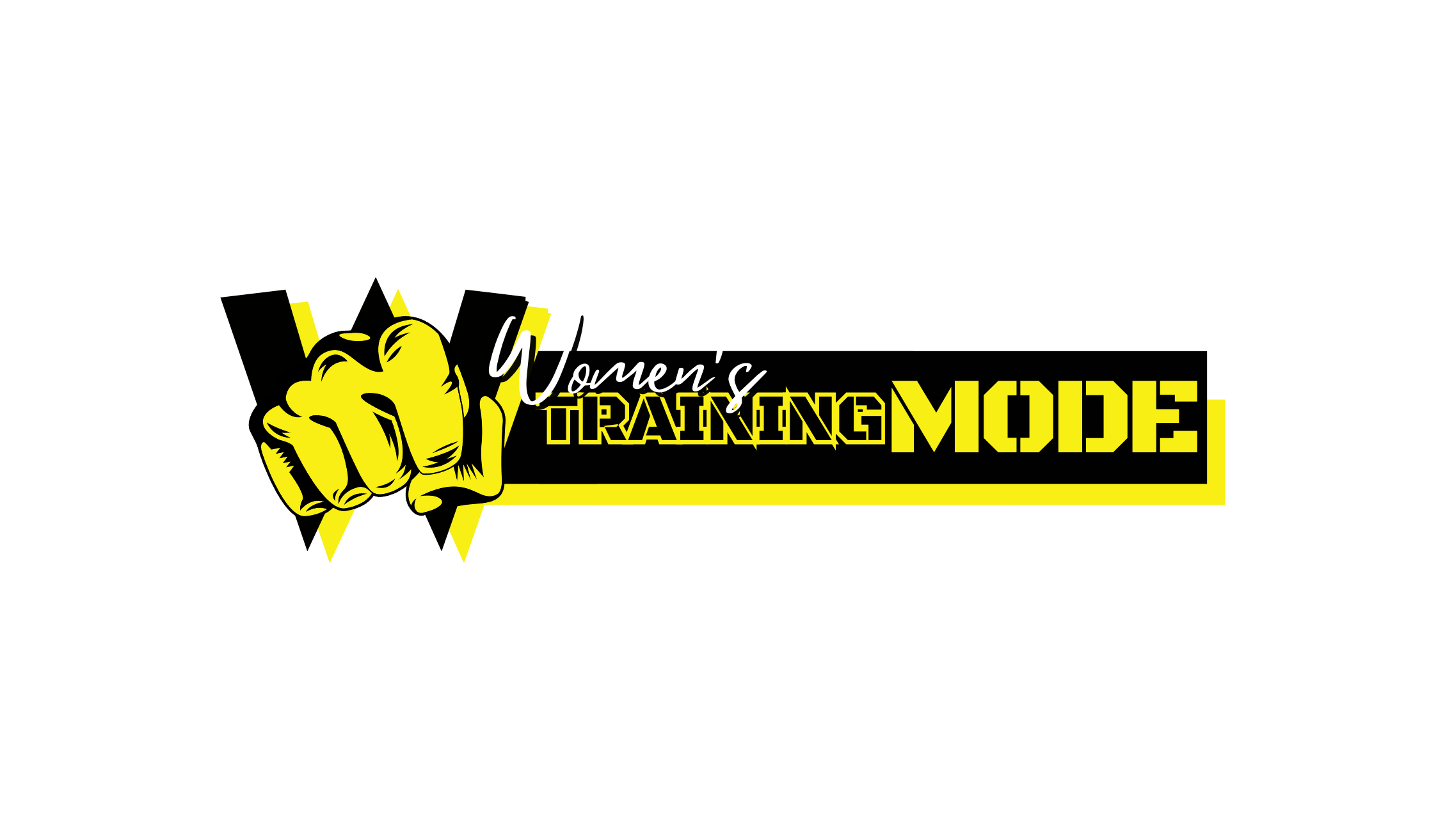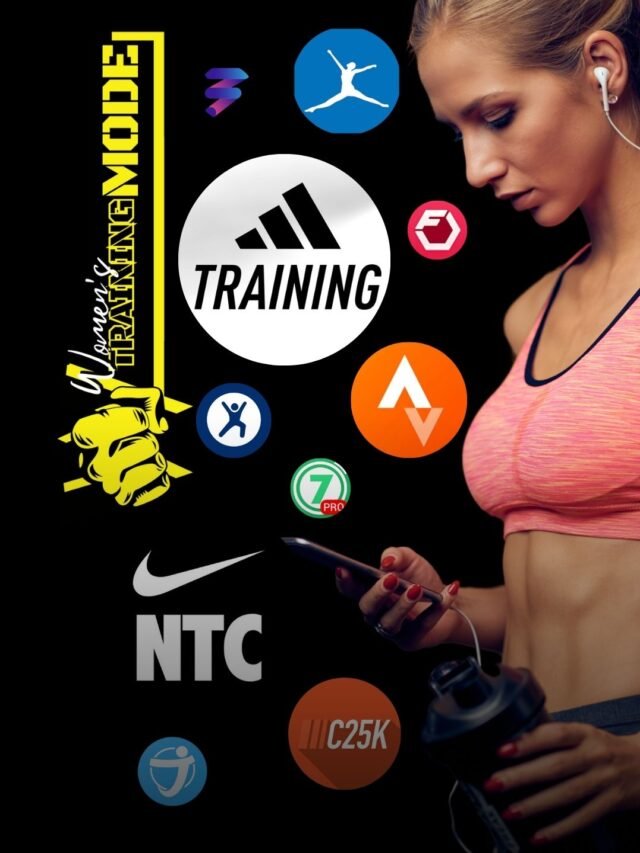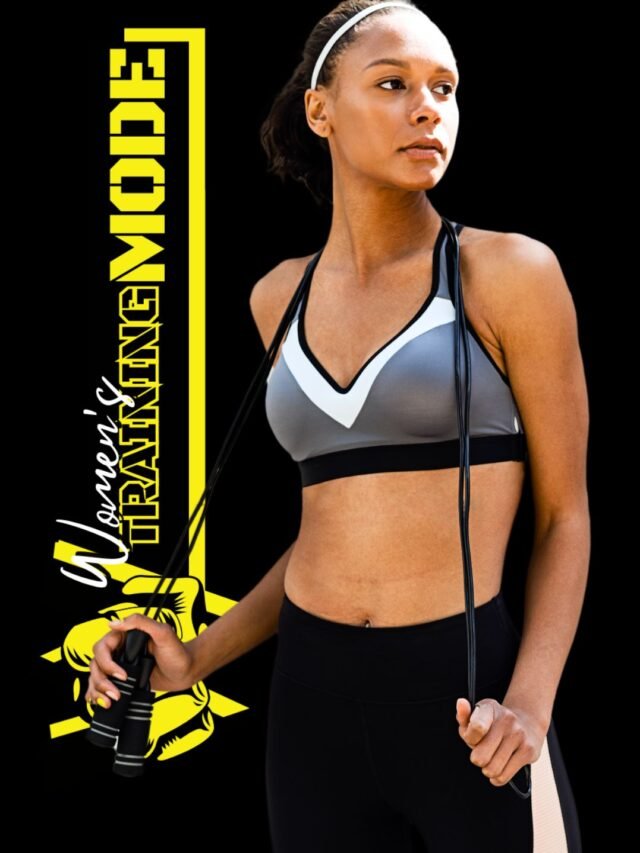Home HIIT Workout for Women who often lead busy lives and find it difficult to find time to exercise.
However, an effective workout at home can be the ideal solution for staying healthy.
One such effective method is high-intensity interval training (HIIT), which delivers great results in a short space of time.
This article introduces HIIT home training for women, which offers a practical and effective approach suitable for women short on time.

The Importance of Home HIIT Workout for Women
High-Intensity Interval Training (HIIT) has gained prominence due to its wide-ranging benefits, especially for women who face specific challenges in their daily lives. This training method offers an efficient approach to achieving fitness goals, even when time is scarce.
Efficient Fat Burning
HIIT is recognized for its ability to burn fat efficiently, thanks to the alternation between periods of extremely high intensity and active recovery. This process stimulates the metabolism, resulting in greater calorie burning even after the workout is over.
Improved cardiovascular endurance
For women, cardiovascular endurance is essential not only for heart health but also for coping with daily physical demands. HIIT, with its high-intensity intervals, challenges the cardiovascular system in an enhanced way, improving endurance over time.
Improved Metabolic Health
Many women seek to improve their metabolic health, especially amid challenges such as the slower metabolism associated with aging. HIIT is effective in optimizing insulin sensitivity and blood sugar regulation, contributing to better metabolic health.
Adaptability to the Modern Woman’s Routine:
Women’s busy, multifaceted lives often make it difficult to devote long periods to exercise. HIIT stands out for its adaptability to time, allowing women to achieve significant results in short workouts, which is particularly valuable when balancing career, family and other commitments.
Hormonal balance
Exercise, including HIIT, plays a crucial role in hormone regulation. For women, maintaining a proper hormonal balance is essential for several aspects, including bone health, reproductive health, and stress management. HIIT can contribute to this balance by promoting a holistic approach to women’s health.
HIIT training offers an effective and adaptable approach for women who want to achieve their fitness goals, offering benefits that go beyond simply burning calories. Integrating HIIT into the daily routine can be a powerful strategy for women looking to optimize their health and well-being, regardless of the busy demands of everyday life.

Vital warm-up
Before embarking on any form of training, it is essential to devote time to a proper warm-up.
This initial stage not only prepares the body for the physical demands to come but also reduces the risk of injury and promotes more effective performance during the main workout.
Warm-up objectives
The warm-up has two main objectives. Firstly, it increases body temperature, which improves muscle flexibility and the efficiency of chemical reactions in the body. Secondly, it prepares the cardiovascular system by gradually increasing the heart rate to a level that supports the intensity of the workout.
Duration and Intensity
The ideal warm-up usually lasts around five minutes. During this time, low-intensity activities such as jumping rope or jumping jacks are effective. These movements stimulate blood flow to the muscles, gradually warming them up.
Pay attention to mobility:
In addition to raising the heart rate, it’s crucial to include mobility exercises in the warm-up. This can involve joint movements and dynamic stretches, helping to improve the range of movement of the joints and reducing muscle stiffness.
Injury prevention:
A proper warm-up not only optimizes performance but also helps prevent injuries. Warmed-up muscles respond better to the stress of exercise, reducing the likelihood of muscle strains, sprains, and other exercise-related injuries.
Adaptation to the Main Workout:
Warming up is not just a formality; it is an integral part of training. It prepares the body and mind for the smooth transition to the main phase of the workout, allowing the intensity to increase progressively and safely.
The importance of respecting the body:
During the warm-up, it is crucial to listen to the body and identify any discomfort. This allows you to adjust the intensity and type of exercise as necessary, ensuring effective preparation without overloading the body.
By devoting time and attention to a careful warm-up, women can maximize the benefits of their workouts, promoting not only improved physical performance but also the long-term safety and sustainability of their physical activities.
The best warm-ups
- Calf stretch
Stand up straight and place one foot in front of the other
Slightly bend the knee of the back leg and keep the front leg straight.
Feel the calf muscle in your leg stretch.
- Quadriceps stretch
While standing, bend one leg backward, holding the ankle with the corresponding hand.
Keep your knee pointed towards the floor and feel the stretch in the front of your thigh.
- Lateral flexion of the waist
Standing, extend one arm over your head, tilting your body to the side.
Feel the stretch along the side of your torso and waist.
- Seated Twist
Sit on the floor, cross one leg over the other, and twist your torso in the opposite direction to the crossed leg.
This exercise stretches the lumbar region and the middle part of the back.
- Butterfly stretch
In a sitting position, touch the sole of your right foot with the sole of your left foot and let your knees fall to the sides.
Hold your feet with your hands and feel the stretch in your inner thighs.
- Seated Forward Bend
Sitting with your legs extended, lean your torso forward, trying to reach your feet.
This exercise stretches the back, hamstrings, and calf muscles.
- Ankle rotation
Sitting or standing, rotate your ankles in both directions.
This exercise is excellent for relieving tension in the ankles, especially after physical activity.
- Puppy Pose (Yoga)
Start on all fours, push your hips back, and extend your arms forward.
This stretches the shoulders, back, and arms.
- Neck Stretch
Standing or sitting, tilt your head to one side, keeping your shoulders relaxed.
Repeat on the other side to stretch the neck muscles.
Remember to perform the stretches gently, holding each position for around 15-30 seconds and breathing deeply to maximize the benefits.

Home HIIT Workout for Women Circuit (15-20 minutes)
The HIIT Circuit is the core of the workout, incorporating the effectiveness of high-intensity interval Training to optimize time and maximize results. This segment not only challenges physically but also promotes post-workout calorie burn and effectively improves cardiovascular endurance.
Circuit structure
The HIIT circuit is designed with a sequence of exercises that alternate between moments of extremely high intensity and periods of active recovery at low intensity. An example would be 30 seconds of jumping jacks or running in place (high intensity) followed by 30 seconds of squats or lunges (low intensity, active recovery).
Appropriate intensity
The intensity of the high-intensity segment should be challenging, pushing the body to work close to its limit. This can involve aerobic exercises such as running in place, jumping jacks, burpees, or any activity that significantly raises the heart rate.
Active Recovery
Periods of low intensity are critical to allow the body to partially but actively recover. This keeps the heart rate high, contributing to the continued burning of calories, while still offering a momentary break to the most demanded muscles.
Adaptations for Conditioning Levels
The circuit must be adapted to the individual’s fitness level. Beginners can start with shorter intervals and less demanding exercises, gradually increasing as endurance improves.
Exercise Variation
Monotony can be an obstacle to consistency. Vary the exercises regularly to maintain interest and challenge different muscle groups. This may involve introducing movements such as push-ups, sit-ups, or even exercises with light weights.
Monitoring form
Maintaining correct form while exercising is crucial to avoiding injury. Paying attention to technique, especially when fatigue sets in, is key to ensuring the safety and effectiveness of the workout.
Focus on quality over quantity
Prioritize the quality of movements over quantity. It’s better to perform fewer repetitions with proper form than to compromise technique to achieve a higher number.
By effectively integrating the HIIT Circuit, women can make the most of the time spent training, experiencing not only immediate calorie burn but also the lasting benefits of a faster metabolism and improved cardiovascular endurance.

Adaptation and Personalization
The key to successful training is adaptation and personalization, recognizing the uniqueness of each individual in terms of fitness, goals, and limitations. In the context of Home HIIT Workout for Women, this tailored approach maximizes the effectiveness of the exercise program.
Individual Fitness Levels
Fitness levels vary widely between people. Beginners can start with lower intensities and shorter training periods, while the more advanced can opt for more challenging exercises and longer intervals. Personalization takes into account current physical capacity and desired progression.
Adaptation to Routine
Recognizing the complexities of daily schedules, it is crucial to adapt training to the time available. The flexibility of HIIT training allows women to customize the duration and intensity according to time availability, making it more sustainable in the long term.
Exercise Variation
Monotony can be a challenge for consistency. Introducing variations in exercises maintains interest and challenges different muscle groups. Variety also prevents the physical and mental wear and tear associated with constant repetition.
Health and Injury Considerations
Personalizing training takes into account any existing health problems or injuries. Certain exercises may need to be adjusted or replaced to avoid excessive impact on specific areas of the body.
Consulting a health professional is very important and indispensable to avoid injuries and aggravation of pre-existing health problems.
Regular monitoring
Regularly assessing progress and making adjustments as necessary is an integral part of personalization. As strength and endurance increase, you can adjust the intensity of the workout to ensure that it remains challenging.
The balance between Challenge and Realism
Personalization seeks to find the balance between challenging the body’s limits and being realistic about life’s routine. This promotes a sustainable commitment, as workouts are adapted to fit in with daily demands, making them more likely to become a consistent part of everyday life.
Professional Advice
Consulting a health professional or personal trainer is advisable when customizing a workout program. This ensures that adaptations align with specific goals and individual needs, minimizing the risk of injury.
By embracing personalization, women can turn HIIT training into an adaptable and sustainable tool, shaped to suit their specific goals and the reality of their busy lives. This holistic approach takes into account each person’s individuality, creating an effective path to achieving and maintaining the desired fitness.

The Importance of Professional Guidance
In any fitness journey, professional guidance plays a crucial role, and this is particularly relevant when incorporating a HIIT workout adapted for women. Expert support not only guarantees the effectiveness of the program but also promotes long-term safety and sustainability.
Initial Assessment
Before starting any new training program, it is essential to carry out an initial assessment. Health professionals and personal trainers can assess your current fitness level, identify specific goals, and consider any existing restrictions or medical conditions.
Personalized Program Design
Based on the assessment, a professional can create a customized workout program that aligns with individual goals, fitness levels, and specific limitations. This optimizes the effectiveness of the workout, ensuring that it is challenging but achievable.
Proper Technical Instruction
Proper technique is essential to avoid injury and maximize the benefits of training. Professionals can offer detailed instructions on correct form during specific exercises, ensuring that movements are performed safely and effectively.
Continuous adaptations
Over time, physical needs and capabilities can change. A health professional or personal trainer can make continuous adjustments to the training program to keep up with these changes, ensuring that training remains effective and safe.
Health monitoring
Health professionals are equipped to monitor overall health during the training program. This is crucial, especially for women, considering factors such as cardiovascular health, bone density, and general well-being.
Motivation and Accountability
Professional guidance also provides a crucial level of motivation and accountability. Having someone to hold accountable can increase consistency and adherence to the training program, making it more likely to become an integral part of the lifestyle.
Injury prevention
Professional guidance not only helps prevent injuries through technical instruction but can also identify early signs of overload or biomechanical problems that can lead to injury if not addressed properly.
Medical consultation
Before embarking on any exercise program, especially for women with pre-existing medical conditions, consulting a health professional is imperative. This ensures that the workout is safe and beneficial, taking into account individual health factors.
By relying on professional guidance, women can be sure that HIIT training is tailored precisely to their individual needs, goals, and circumstances. This not only improves the effectiveness of the workout but also creates a safe and motivating environment to promote long-term success.

What is EPOC in HIIT training? What are its benefits?
The EPOC Effect (Excess Post-Exercise Oxygen Consumption) plays a significant role in Home HIIT Workouts for Women.
This metabolic phenomenon refers to the increase in oxygen consumption after exercise, resulting in an additional calorie burn.
Accelerating Fat Burning
Increased Metabolism:
During HIIT, the intensity of the exercise causes a significant metabolic demand. After training, the body continues to need more oxygen to recover, increasing basal metabolism.
Post-exercise calorie burn:
EPOC contributes to an additional calorie burn after the workout is over. This effect can last several hours and, in some cases, even days, depending on the intensity of the exercise.
Mobilization of fat reserves:
During EPOC, the body uses fat reserves as a source of energy for muscle recovery and repair. This is particularly beneficial for those looking to reduce body fat.
Maintenance of Energy Expenditure:
EPOC keeps energy expenditure high, even at rest. This means that even after the HIIT workout is over, the body continues to burn calories, contributing to weight loss and healthy body composition.
Efficient Training in Limited Time
Increased calorie expenditure:
EPOC results in increased calorie expenditure after training, extending the benefits beyond the exercise session. In an efficient, time-limited workout, this additional calorie burn is particularly valuable.
Optimizing Training Time:
Short workouts, such as those that fit into busy schedules, can still be highly effective due to EPOC. Even in periods of limited time, the body continues to burn calories, contributing to the efficiency of the workout.
Post-exercise fat burning:
EPOC favors the use of fat reserves as an energy source, especially after high-intensity workouts. In an efficient workout, this post-exercise fat-burning is maximized.
Maintaining High Metabolism:
EPOC keeps the metabolism in an accelerated state, even after the workout is over. This is crucial in time-limited workouts to ensure long-lasting results.
Variety and Intensity:
The effectiveness of EPOC is enhanced when the workout includes exercises of high intensity and variety. This is especially useful in short-duration workouts, providing significant stimuli to the body.
Lifestyle adaptation
Increased Metabolism
EPOC results in a temporary increase in metabolism after exercise, which contributes to healthy lifestyle adaptation by promoting continuous calorie burning.
Additional Calorie Burning
Lifestyle adaptation is favored by EPOC due to the additional calorie burning that occurs even after exercise is complete, aiding weight management.
Fat Oxidation
EPOC encourages the oxidation of fats for energy, an essential aspect in adapting to a healthy lifestyle, contributing to the reduction of lipid reserves.
Improved Fitness
EPOC’s ability to maintain the body in a state of high energy expenditure, even after training, contributes to improvements in cardiovascular fitness and endurance.
Stress management
Regular exercise with an EPOC effect is related to stress reduction, promoting adaptation to a healthy lifestyle by addressing both physical and mental aspects.
Variety of exercises
Variety Stimulates EPOC
Engaging in different types of exercise, such as running, swimming, cycling, and weight training, can boost EPOC. The variation of activities challenges the body in different ways, increasing post-exercise energy expenditure.
Intensity and muscle groups
The intensity of the exercise and the involvement of different muscle groups directly influence EPOC. High-intensity exercises that recruit several muscles contribute to a greater post-exercise effect.
Training Volume
Training volume, which encompasses the quantity and diversity of exercises performed, can impact the magnitude of EPOC. Greater variety and volume generally result in a more pronounced EPOC.
Calorie Burning Benefits
Exercise Variety not only keeps training interesting but also optimizes EPOC, promoting a continuous burning of calories even after the workout has finished.
Adaptation and Evolution
Introducing new challenges to the body through a variety of exercises stimulates physical adaptation and evolution, contributing to a comprehensive and sustainable approach to health and conditioning.
Combination of aerobic and strength exercises
Synergistic benefits
The combined practice of cardiovascular and strength exercises can maximize EPOC. Both types of exercise stimulate the metabolism in different ways, resulting in a significant increase in calorie expenditure after training.
Concurrent Training
Studies show that concurrent training, which incorporates both aerobic and resistance exercises, can boost EPOC compared to isolated exercises. This is due to the greater metabolic demand placed on the body.
Maintaining and Gaining Muscle Mass
The combination of cardio and strength not only optimizes calorie burning during exercise but also promotes the maintenance and gain of muscle mass. This is crucial, as active muscles contribute to a more expressive EPOC.
Variety of Stimuli
Alternating between cardiovascular and resistance activities provides the body with a variety of stimuli, challenging it in different ways. This variation can intensify EPOC, as the body adapts to different types of effort.
Strategic Planning
A strategic training plan that includes both cardio and strength exercises in a balanced way can be an effective approach to maximizing the benefits of EPOC and promoting overall health.
Integrating an understanding of EPOC into training strategies is essential for achieving fitness goals and increasing the overall effectiveness of physical activity.
15-minute HIIT workout
Home HIIT (High-Intensity Interval Training) workouts offer a time-efficient and effective way for women to stay fit. Here’s a simple and adaptable 15-minute HIIT workout
- Jumping Jacks (1 minute): Start with a full-body warm-up using jumping jacks to elevate the heart rate.
- Bodyweight Squats (45 seconds): Engage the lower body by performing squats. Keep the back straight and knees aligned with the toes.
- Push-ups (45 seconds) If possible, do them on your knees.
- Mountain Climbers (1 minute): Work on the core and cardiovascular system with mountain climbers, bringing knees towards the chest.
- High Knees (45 seconds): Boost heart rate and target the core by performing high knees.
- Plank (1 minute): Strengthen the core with a plank position, focusing on a straight line from head to heels.
- Burpees (45 seconds): Incorporate full-body movements with burpees for a calorie-burning effect.
- Lunges (45 seconds per leg): Target the legs and glutes with forward or reverse lunges.
- Tricep Dips (45 seconds): Utilize a sturdy chair for tricep dips to tone the arms.
- Jump Rope (1 minute): Finish with a burst of cardio using a virtual jump rope or the real thing.
Remember to perform each exercise with proper form, and adjust the intensity based on your fitness level. Consistency is key to seeing results.
Conclusion: Home HIIT Workout for Women
At the end of HIIT training adapted for women short on time, it is essential to highlight the overall conclusions and benefits of this efficient approach. The end of the workout is not just the physical conclusion; it is a reflection of the achievements and a vision for the future.
Expressive Results in Limited Time
HIIT training demonstrates its effectiveness by providing expressive results in a relatively short period. Busy women can reap significant benefits, from calorie burn to improved cardiovascular endurance, in just 30-40 minutes per session.
Adaptation to Everyday Reality
The flexibility inherent in HIIT training makes it highly adaptable to women’s everyday realities. With the ability to adjust duration and intensity, this method becomes a practical and accessible tool, allowing women to integrate exercise consistently into their lives.
Holistic health promotion
In addition to the visible physical benefits, HIIT training contributes to women’s holistic health. From improvements in metabolic health to hormonal balance, this approach covers many aspects of women’s well-being.
Long-term sustainability
HIIT training, when adapted and personalized, can be sustainable in the long term. The inclusion of elements such as full-body training and professional advice ensures that the program is dynamic, challenging, and adjusted according to individual evolution, maintaining interest and motivation.
The value of career guidance
The conclusion reinforces the importance of professional guidance when embarking on any fitness journey. Consulting health professionals and personal trainers not only optimizes results but also promotes safety and consistent adherence to the program.
Commitment to Long-Term Health
Finally, the conclusion highlights that Home HIIT Workout for Women is more than just a physical activity; it is a commitment to long-term health. By integrating this efficient approach, women are investing not only in their current fitness but also in their quality of life and future well-being.
In short, Home HIIT Workout for Women offers a practical, effective, and adaptable solution for optimizing fitness, even in the face of busy schedules. By embracing this holistic and sustainable approach, women can reap lasting benefits for their health and well-being.
For more articles like this, click here.
important notice
This article aims to get you off the couch and living a healthy life. We want to give you information on how exercise can be an interesting part of a healthy lifestyle.
But the point is that what we’re sharing here is not a substitute for talking to a health professional or personal trainer. Before embarking on an exercise routine, it’s a good idea to talk to a health specialist, especially if you have any health problems.
Everyone is different and what works for one person may not be the same for another. That’s why having a professional by your side is the key to making sure you’re doing it safely and properly









